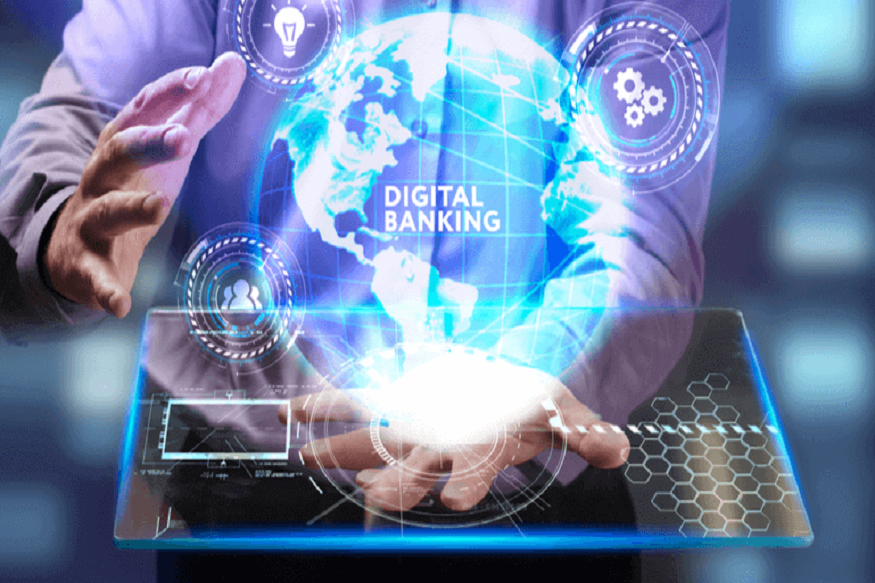Take a minute and recall the last time you made a big financial decision, maybe an investment, a loan, or even a costly purchase. Chances are, you didn’t visit a bank. Digital banking has completely changed how financial decisions are made by offering bespoke solutions at your fingertips.
But this digital transformation is not just about making things faster. Technology is reshaping how banks operate and how you handle and grow your wealth. Wondering what’s driving this change and what the future of banking looks like?Get all the insights below.
Mobile and online banking
Mobile and onlinebanking offer more than just balance checks, bill payments, and fund transfers. Today’s platforms offer sophisticated portfolio management, international transactions, and instant access to personalised financial insights. Private banks and fintech firms are introducing functionalities, such as real-time investment tracking, concierge services, and customised dashboards displaying net worth across multiple asset classes.
Many digital banking solutions also offer exclusive privileges, such as video-call customer support, seamless cross-border transactions, and integration with luxury lifestyle services.From instant global transfers to wealth management, these platforms act as a centralised hub for all financial needs.
Personalised financial advice and product recommendations
It is a digital world today, and people naturally expect faster and more personalised services. Artificial Intelligence (AI) and Machine Learning (ML) are helping banks fulfil this demand. Banks can now collect information from different sources to assess your priorities, financial goals, and life events. Using this data, they can create personalised experiences that meet your expectations as a High-Net-Worth (HNI) client.
For example, AI-powered systems track changes in income, expenses, and investments, allowing banks to detect patterns. If you start investing more in a particular sector, AI-driven insights can suggest related opportunities or highlight potential risks.
High security to protect wealth in the digital age
While digital banking has multiple benefits, it also exposes banks to cyberattacks. However, banks now use biometric authentication, such as facial recognition and fingerprint scanning, so that no unauthorised person can access your account. Advanced encryption protects transactions, while AI-driven fraud detection monitors account activity in realtime.
With behavioural analytics, security reaches a new level. These systems analyse transaction patterns and flag unusual activity, such as logins from unexpected locations or sudden high-value withdrawals. In such cases, you get instant alerts, and transactions may require additional verification.
Additionally, zero-trust security frameworks have become a standard approach. Every transaction, device, and login attempt is verified individually to minimise the risk of unauthorised access.
Sustainable and green banking initiatives
Digital banking services are not only revolutionising financial transactions but also driving sustainability in the banking industry. The key ways in which digital banking promotes sustainability include:
- Paperless banking:Online statements, e-signatures, and digital transactions help cut down paper usage and minimise waste.
- Green financing:Banks provide financial support for projects that benefit the environment.
- Sustainable investments:Many banks offer Environmental, Social, and Governance (ESG) focused investment funds.
- Carbon-neutral banking: Banks invest in carbon-neutral data centres and eco-friendly office spaces.
Fintech and big tech partnerships
Collaboration among banks, fintech firms, and big tech companies is reshaping digital banking by introducing financial innovations that boost efficiency, security, and customer experience.
For example, fintech firms develop innovative payment systems, lending platforms, and investment tools, whereas big tech companies offer cloud computing, AI, and cybersecurity solutions. Banks integrate these technologies to offer faster transactions, automated customer support, and enhanced fraud detection.
To sum up
It is evident that digital banking is redefining financial ecosystems. Innovations in AI, blockchain, and cloud computing are changing how people handle money and making transactions faster, safer, and more accessible. As banks integrate sustainability and collaborate with fintech and big tech, banking is becoming more efficient and customer oriented.
Challenges like cybersecurity risks are still a concern, but ongoing advancements in encryption, fraud detection, and regulatory frameworks are strengthening digital banking security. As security improves and technology advances, digital banking has the potential to grow further and make financial services even more personalised and accessible.

